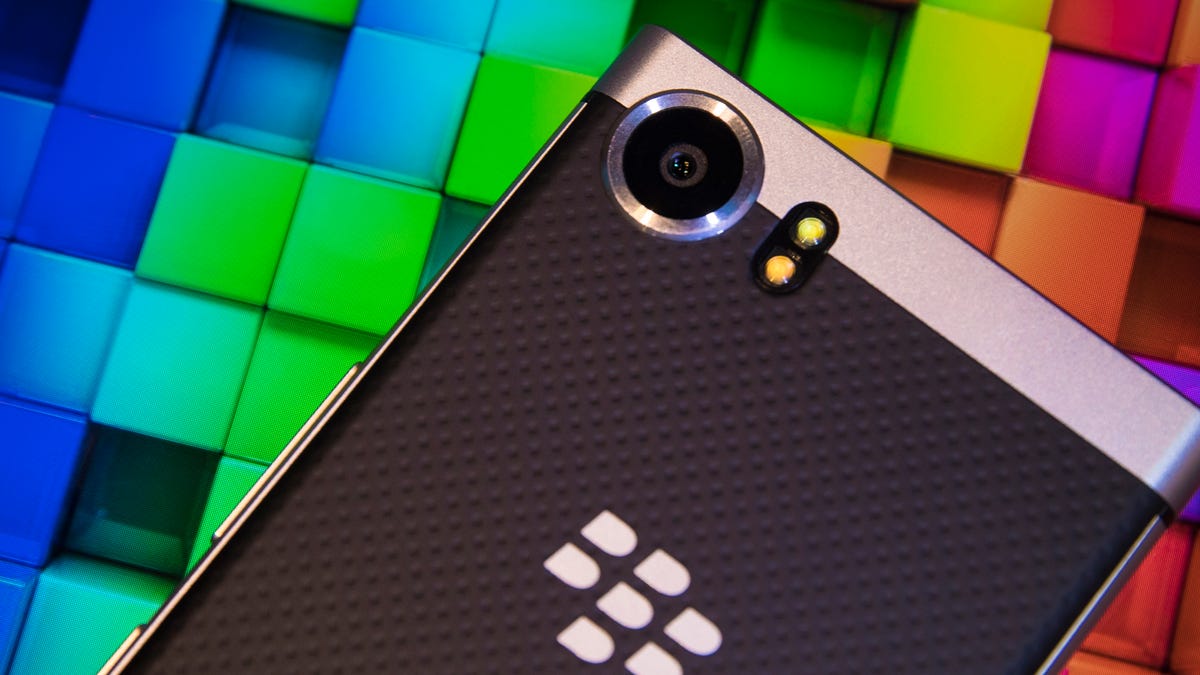Comeback kids: Nokia goes low while BlackBerry aims high -- for now
Ten years ago, Nokia and BlackBerry were the hottest names in phones. Now, both are struggling to live another year.

When Steve Jobs launched the original iPhone in 2007, its revolutionary all-touchscreen design blew away the then-dominant keyboard phones of the day: the Moto Q, Palm Treo, Nokia E62 and BlackBerry Pearl .
BlackBerry's new phone channels its QWERTY soul.
Back then, Nokia and BlackBerry were the smartphone standard-bearers and Apple was the daring upstart. Now, as the iPhone celebrates its 10th anniversary with strong sales and growing global marketshare, the erstwhile kings of mobile are faced with a rare, slim shot at keeping their names alive after years of irrelevance and obscurity. BlackBerry with a phone rumored to be named "Mercury" (the latest to sport their flagship physical keyboard) and "Nokia" with the 6 (a midranger recently released for China), as well as the Nokia 5, Nokia 3, and a cheap feature phone.
The whole haul will launch globally on February 26 at Mobile World Congress , the annual phone-focused trade show that kicks off in Barcelona next month. How well they succeed depends entirely on their price and positioning to the people who will care enough to buy them.
Leaning on licensees
The funny thing is that neither Nokia nor BlackBerry will actually make the phones that bear their names. The Nokia brand is licensed by HMD (and manufactured by Foxconn FIH Mobile). BlackBerry still owns proprietary software like BlackBerry Hub, but a company called TCL has licensed the rights to make the phone. (TCL, a Chinese company that's had recent success with Roku TVs in the US, also makes devices like 2016's Alcatel Idol 4.)
It's up to these companies to help the Nokia and BlackBerry names sink or swim.
Betting big on Android
Before the iPhone changed everything, Nokia and BlackBerry were status symbols, but their third-party software fell behind. A struggling Nokia sided with Microsoft to create the doomed Lumia line (Microsoft bought a 10-year license to the Nokia name, which it abandoned after 5). Meanwhile, BlackBerry faltered with its own BlackBerry OS before turning to Android, which it padded with its own security software. The Mercury will keep this combo.
The Nokia 6 is the brand's first Android phone, but Google Play services are disabled in China, the 6's first market. Its MWC launch will be the first time we get to see the handset in full-on Googly action, and see how an Android Nokia phone really works.
You take the high road, I'll take the low road
"Nokia" and BlackBerry have similar ambitions, but different ways of getting there. BlackBerry's "Mercury" aims for the high end (we don't know how high, but they tell us "premium"), while the Nokia 6 is firmly planted in the midrange, with a sale price in China that converts to about $250, £200 and AU$330. Although we don't know much about HMD's plans for its roster of Nokia phones, we do know it plans to dole out $500 million over the next three years on global marketing.
We'll soon see the Nokia 6 in person.
BlackBerry-licenser TCL may shoot for the high end now, but it plans to build a complete portfolio of devices that span the cost spectrum, Alcatel's head of North America, Steve Cistulli, told CNET. Before 2017 ends, expect the Mercury to have a low-cost counterpart.
Who will care enough to buy?
But will all the cash matter? Will the best-laid plans stall "Nokia" and BlackBerry's downward spirals long enough to see them gain new buyers?
It's hard to say.
During the dark Microsoft Lumia days, the family of phones did best as a low-cost brand with solid hardware, especially in cost-conscious and emerging markets. The "Lumia" name became a value buy. With Android at its side, there's a chance that HMD's Nokia brand could fight in the mid-tier. The Nokia name has a history of built-in wireless charging and metal construction, but it's been so long since the its designers were allowed to really branch out from candy-colored plastic, it's hard to imagine a super premium Android Nokia phone.
BlackBerry, meanwhile, will continue to struggle with an identity crisis so long as it holds on to the notion that its security software is the thing that sets it apart -- software that primes it as a business device rather than one that the everyday consumer would want. Still, its signature hard QWERTY keyboard does appeal to anyone who likes the thought of physical, rather than virtual, typing.
Once upon a time, you could expect stalwart fans to prop up sales of the latest Nokia and BlackBerry phones, at least initially. But with all but the die-hard fanboys having given up and moved on to Android or iPhone alternatives, it remains to be seen if these legacy brands can even carve out a niche in the middle or low end. Only time will tell.
Article initially published January 16, 2017 and updated on February 14, 2017.

